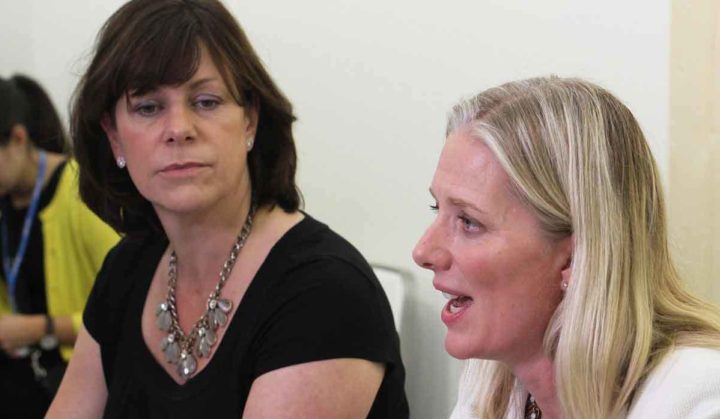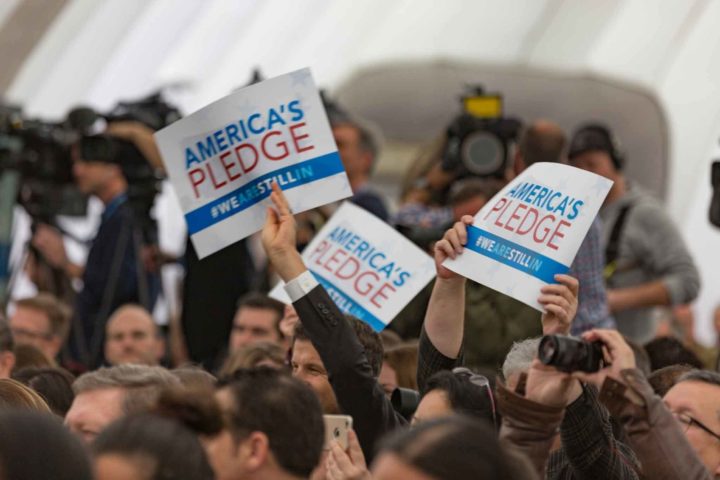UN climate talks: Despatches from Dullsville
UN conference in Bonn was low-key but positive, says Richard Black
By Richard Black
Share
Last updated:
I’m really hoping that no-one asks me over the next week ‘So what happened at the COP?’

I’ve been to eight UNFCCC COPs (Conferences of the Parties to the UN Framework Convention on Climate Change), and I can honestly say that this year’s, which has just concluded in the German city of Bonn, has been the lowest-key of the lot.
Which is not to say it hasn’t been positive and optimistic, because I think it has been.
Stardust was almost entirely absent. French President Emmanuel Macron turned heads on Wednesday as he processed, prophet-like, from one end of the conference centre to the other; and Arnold Schwarzenegger was briefly in town to show that Donald Trump hasn’t terminated US engagement on climate change.
But that was about it - a far cry from the phalanx of world leaders and glitterati that adorned the Paris Summit two years ago.
Coal in the spotlight
Protests and political announcements were also thin on the ground. Such as there focussed on coal – the most polluting fossil fuel, and so logically the one that has to go first if governments are to keep global warming within the targets they agreed in Paris.

A big march held just before the summit opening focussed on Germany’s persisting love affair with coal – a big embarrassment for a country that loves to proclaim its climate leadership.
Angela Merkel might have chosen this summit to make a seminal announcement on the issue – but couldn’t, given that she’s currently trying to form a coalition with both the Green Party and the coal-loving Free Democrats.
Germany’s embarrassment can only have been heightened by the launch of the ‘Powering Past Coal Alliance' – a group of so far 20 countries, plus a smattering of US states and Canadian provinces, committed to ending the use of coal.
It’s a feather in the cap for the UK and Canada, the formative nations. The counter is that so far it includes countries that either don’t use coal or are phasing it out anyway. In my view, it’s potentially a very significant body, but to prove its worth it’ll have to do three things:
- Recruit more members (which is promised)
- Demonstrate that it is inducing countries to end coal use faster than they would otherwise have done
- Bring about an end to the financing of new coal-fired power stations, as well as the use of existing ones.
And the US provoked a large but remarkably tuneful demonstration after hosting an event highlighting the role that nuclear energy and – erm – coal have in tackling climate change.
Nuclear power, of course, can have a role. But when science indicates that meeting the Paris targets involves peaking global emissions within a few years, making a case for coal is like promoting the fattiest beefburgers as a ‘solution’ to obesity.
Writing the rules
Meanwhile, the negotiations proper concentrated mainly on trying to agree the ‘rulebook’ for the Paris Agreement.

‘Agreeing the rulebook’ is shorthand for saying ‘deciding how the various bits of the Paris Agreement will work’.
For example, the Agreement says: ‘Each Party shall prepare, communicate and maintain successive nationally determined contributions that it intends to achieve’ – the main focus of these nationally determined contributions being by how much they intend to curb emissions.
But what the Agreement doesn’t say is exactly what is to be included in an NDC – how uniform they have to be – what needs to be covered on adaptation to climate impacts – whether the rules for rich and poor countries will be the same – and so on.
But as countries have agreed to conclude all of this rule-agreeing at next year’s UN summit, discussions here lacked a deadline… and as any journalist will tell you, without a deadline, minds can be very un-concentrated.
If you really want to, you can go to the UNFCCC website and read the various ‘informal notes’ prepared by the chairs of the various strands. They’ll give you an idea of what countries have proposed and how the visions on display vary. But life’s too short for me to take you through them line by line. You’re on your own.
Taking stock
A few things are worth picking out. One is to note that the discussions on ‘transparency’ of emissions-reporting are being co-chaired by the US and China. That’s quite positive, I think, given that historically a visceral reaction of red-meat US Republicans has been ‘how can we tell what the Chinese are doing?’ Potentially, the US-China leadership of this group will allow a Donald Trump White House to answer ‘we’re confident because our guy’s been sorting it out’. Although many rivers, of course, lie between here and there.
A second thing is that countries agreed to do a stocktake next year to evaluate whether the actions they’re intending to take before 2020 are adequate given the challenges of climate change. This is something of a step forward, given that the agreement reached in Paris envisaged the initial stocktaking exercise looking at actions after 2020.

There were really two factors involved in the decision. One is the increasing evidence of climate change impacts in the world around us now; the second is that some countries believe that taking a closer look at climate change mitigation now positions them better to accelerate their transition to clean energy.
The summit’s other ‘big picture ingredients’ included news that during 2017 we saw an uptick in global carbon emissions after three years of flatlining – although this probably isn’t quite as cataclysmic as the somewhat alarmist messaging from the scientists involved made it seem.
And – this was in my last blog, a much more interesting one – two pieces of evidence indicated that countries are promising less by way of expanding renewable energy and helping the natural world store carbon than they can easily deliver, suggesting that they can curb emissions faster than they've so far pledged.
And… that’s about it, folks.
Cynicism dashed
If you’re one of those people who’s been cynical about the UN process, this summit had plenty to suggest you’re wrong. Negotiations were constructive, with many delegations using the old adage that we humans ‘have two ears, but only one mouth’. There’s a genuine will to bring the Paris Agreement into effect.
The US was here, not disrupting talks but using the technical and legal prowess of its negotiators to positive effect.
And as always, the tumbling prices of renewable energy, the will of citizens around the world (as evidenced in opinion polls) to get this sorted, and the power of innovation were much on display.
But earth-shattering developments? To be brutally honest: not really. Next year's should be more the real deal.
Share